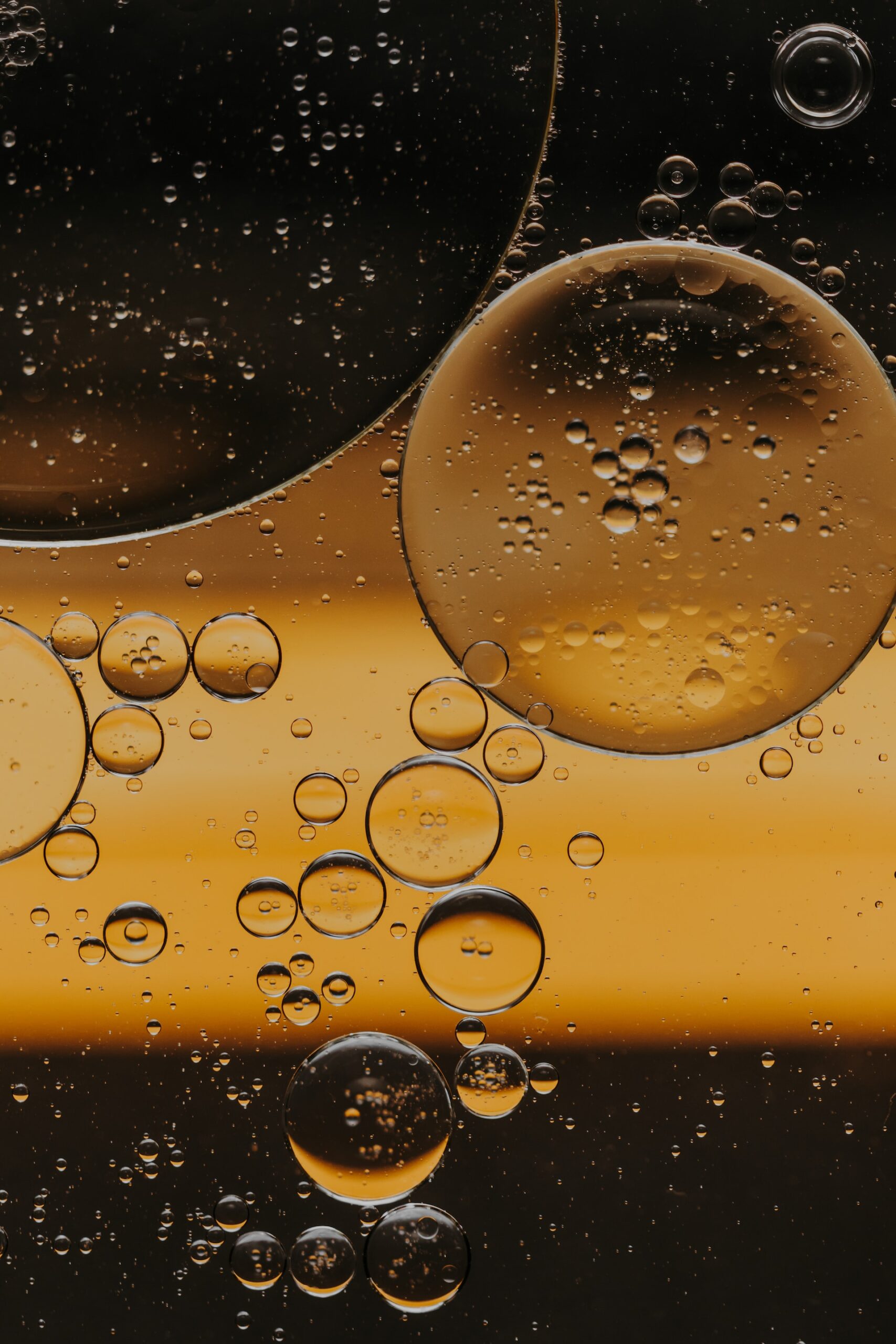Hyaluronic Acid: A Good Humectant, but Is It Overrated?
Is hyaluronic acid the ultimate solution for hydrated skin? Not so fast. While hyaluronic acid plays important roles in our body and skin, recent research reveals it may not be the skincare superhero it’s made out to be.

Hyaluronic acid is a natural substance produced by our bodies, and it plays a vital role in various processes, such as cell signaling, wound healing, and tissue regeneration. It is naturally present in the skin and serves different functions. One of its roles is to assist in skin hydration. Acting as a humectant, hyaluronic acid attracts water molecules to the outer layers of the skin, contributing to the maintenance of a healthy skin barrier and promoting skin elasticity. You may have heard that hyaluronic acid has the ability to retain up to 1,000 times its weight in water, which seems promising for skin hydration.
However, recent studies have revealed a caveat: when it comes to enhancing skin hydration, moisturizers containing hyaluronic acid may be less effective compared to formulations containing other common humectants like glycerin.
In a study, researchers compared the moisturizing effects of two basic hydrating creams. One cream had hyaluronic acid to attract water to the skin and dimethicone to prevent water from evaporating. The other cream had glycerin to attract water and dimethicone to prevent evaporation. Interestingly, the cream with glycerin was better at hydrating the skin both 30 minutes and 6 hours after application.
The research team behind a new Canadian skincare brand, Regimen Lab, conducted another test that may surprise skincare lovers. The researchers found that hyaluronic acid in topical formulations actually caused skin dehydration in low humidity environments. This is particularly concerning since we often rely on moisturizers to work effectively in low humidity conditions created by heating or air conditioning.
“To sum it all up, most of the Hyaluronic Acid (HA) samples dehydrated the skin. We had to remeasure everything and make sure our controls were working properly, but the results stayed the same for all Hyaluronic acid humectants. We also sourced HA from different suppliers, and they all have the same results.”
Regimen Lab team
The researchers at Regimen Lab are uncertain as to why hyaluronic acid resulted in skin dehydration instead of moisturization. One potential explanation is that hyaluronic acid may disrupt the organization of lipids in our skin barrier, leading to a weakened barrier overall.
Is hyaluronic acid the best hydrator in skincare products?
Ongoing research suggests that the answer is “no.” Humectants like glycerin or urea have stronger evidence supporting their effectiveness in improving skin barrier function and enhancing skin hydration when used in topical products. There’s no need to go out of your way to include hyaluronic acid in your skincare routine. In fact, using skincare serums or creams with high concentrations of hyaluronic acid is unnecessary. If you opt for a hyaluronic acid product for hydration, it’s best to choose one with less than 1% hyaluronic acid.
However, there’s no need to avoid hyaluronic acid altogether in skincare products, particularly if they serve other purposes besides moisturization and you haven’t experienced sensitivity to hyaluronic acid in the past. Like other humectants, hyaluronic acid can improve the penetration of other skincare ingredients through the skin barrier. This quality proves useful in serums containing retinoids or vitamin C. Given that the beauty industry tends to market hyaluronic acid as a more “sexy” humectant compared to urea or glycerin, HA finds its way into numerous products these days. So, if you choose to avoid hyaluronic acid, you may miss out on many otherwise good formulations.
Can hyaluronic acid cause skin redness and inflammation?
The short answer is yes, it’s possible. If you have reactive, sensitive skin prone to redness and small inflamed spots, a product with hyaluronic acid could be the culprit.
Not all hyaluronic acid is the same. Our skin naturally contains two types: high molecular weight (big molecules) and low molecular weight (small molecules) hyaluronic acid.
The big molecules of hyaluronic acid (HA) are found in the outer layer of our skin, where they help create and maintain a protective barrier between the deeper layers of our skin and the outside environment. They attract water to the skin’s surface, keeping it supple, flexible, and what skincare marketers often describe as radiant. Applying high molecular weight HA topically can support skin barrier function by attracting moisture, as long as it is combined with an emollient like oil or silicone to seal it in. If HA is applied on its own in a dry environment, it can actually draw water out of the skin, making it drier.
Small molecules of HA are also naturally present in our skin. They are formed when the larger HA molecules break down due to inflammation or injury. These small HA molecules can trigger the skin’s immune response, leading to increased production of cytokines, which create more inflammation that can help the skin fight infections. The theory suggests that applying low molecular weight HA topically can stimulate an inflammatory response, even in the absence of an infection, resulting in heightened skin sensitivity, redness, blemishes, and dryness.
While dermatological studies confirm that low molecular weight HA can stimulate an inflammatory response in the skin, there is no evidence that using the concentrations typically found in cosmetics actually causes inflammation. However, it may be wise to err on the side of caution, especially if you have sensitive skin, and choose products with high molecular weight hyaluronic acid.
How can you determine which type of HA is used in a product? Paradoxically, skincare brands often proudly advertise the use of low molecular weight HA. This type of HA is more expensive and can penetrate deeper into the skin, so it is often seen as a benefit. If you want to increase your chances of buying a product with high molecular weight HA, opt for affordable brands with simple formulations that either specifically mention the use of big HA molecules or do not disclose the type of HA they use (which most likely means it is high molecular weight HA).
Can hyaluronic acid cause sun sensitivity?
Hyaluronic acid does not cause sun sensitivity. The thing is: hyaluronic acid because it is not very acidic. The pH of hyaluronic acid solutions is similar to the natural pH of the skin. The form commonly used in skincare is actually a salt called sodium hyaluronate. Neither form of hyaluronic acid exfoliates the skin or makes it more susceptible to sun damage.
This means you can safely apply products with hyaluronic acid under your sunscreen during the day.
Does taking hyaluronic acid as a food supplement help skin hydration?
While some studies suggest that taking hyaluronic acid (HA) supplements can improve skin hydration, it’s important to approach these findings with caution. Research indicates that orally-ingested HA breaks down into smaller oligosaccharides in the intestines, which are then absorbed and distributed throughout the skin. However, if you eat a balanced, healthy diet, your body naturally obtains sufficient “building blocks” for hyaluronic acid production.
Furthermore, the effects of orally-ingested low molecular weight HA vary in different studies. Some indicate inflammatory properties, while others highlight its potential in reducing knee joint pain without causing inflammation. As a result, when it comes to skin health, hyaluronic acid supplementation is not our top recommendation.
Sources
- Hyaluronic acid applications in ophthalmology, rheumatology, and dermatology https://www.sciencedirect.com/science/article/abs/pii/S0008621520300124
- A Low Molecular Weight Hyaluronic Acid Derivative Accelerates Excisional Wound Healing by Modulating Pro-Inflammation, Promoting Epithelialization and Neovascularization, and Remodeling Collagen https://www.mdpi.com/1422-0067/20/15/3722
- Hyaluronan in wound healing: rediscovering a major player https://pubmed.ncbi.nlm.nih.gov/25039417/
- The Effect of Glycerin, Hyaluronic Acid and Silicone Oil on the Hydration, Moisturization and Transepidermal Water Loss in Human Skin https://www.e-ajbc.org/journal/view.php?number=640
- Hyaluronic Acid in the Third Millennium https://www.ncbi.nlm.nih.gov/pmc/articles/PMC6403654/
Choose your products based on actives
WIMJ Search allows you to select skincare products based on what’s inside. Filter products by actives included, and exclude ingredients you don’t want. Check the concentration of ingredients and potential irritants.
Related Articles
Winter Skin Care: Navigating the Chilly Season with Healthy Skin
Let’s dive into understanding winter skin and how to best care for it.
Sunflower Seed Oil: The Top Face Oil For Skin Barrier
Struggling to decide which face oil to choose? Sunflower seed oil might not be the most glamorous or exotic of skincare oils, but it could actually be the best for your skin.
Is Petrolatum In Skincare Bad?
Get the facts about petrolatum, a top ingredient in skincare. Learn how this powerful moisturizer soothes, protects, and hydrates the skin. Plus, discover why it’s trending on social media and how it’s safe even for the most sensitive skin areas.
The Ultimate Guide to Skin Cleansing
Daily skin cleansing is an essential part of skincare, but do we truly understand why we cleanse our skin and how it works? How often should we wash our skin? Let’s dive deep into the world of skin cleansing and clarify the typically overlooked basics.
How to Choose A Good Moisturizer?
Choosing the right moisturizer for your skin can be a daunting task. The market is awash with countless products, each promising to hydrate, protect, and nourish your skin. So, how do you make an informed choice? Let’s break down the evidence behind effects of moisturizers, debunk marketing myths, and learn how to choose the best moisturizer for your skin.
Glycerin
Glycerin: The King of Skin Hydration Glycerin is the unsung hero of skincare; it is one of the most effective ingredients for skin moisturization known to science. It helps hydrate and calm dry, dehydrated, and irritated skin. Furthermore, it is very affordable and...
